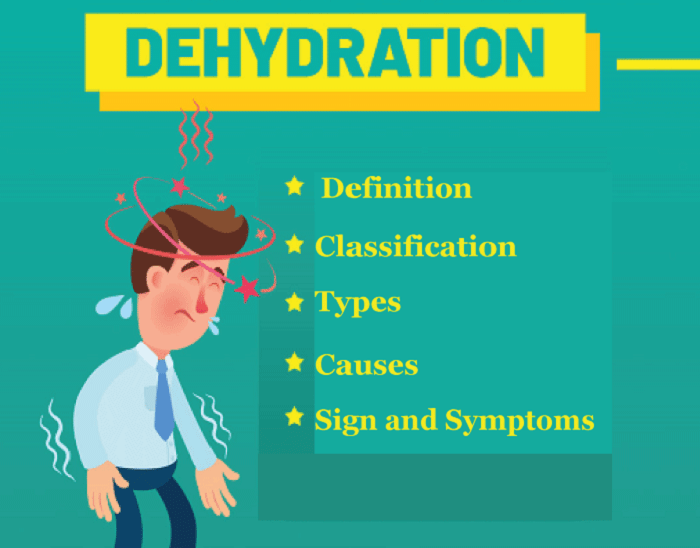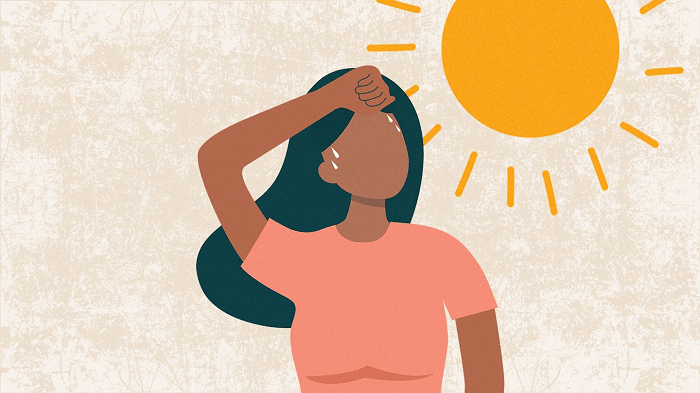Dehydration DefinitionIntroductionDehydration happens when your Body lacks the fluids, including water, required to execute its usual activities, which happens when you use or lose more liquid than you intake. Insufficient replacement of lost fluids will result in dehydration. 
Dehydration can affect everyone, but young and older adults are particularly vulnerable to the disease. Dehydration in young children is most frequently brought on by severe diarrhea and vomiting. Older adults naturally have less water in their bodies and may also be suffering from diseases or using medications that put them at greater risk of becoming dehydrated. Dehydration in older persons can also be caused by even relatively minor ailments, such as lung or bladder infections. If you don't drink enough water in hot weather, especially if you move hard, dehydration can happen to anyone of any age. More fluids can usually help you recover from mild to moderate dehydration, but severe dehydration requires immediate medical attention. What is Dehydration?Warm weather invites calm coastal breezes, hammock naps, and tall glasses of lemonade. Hold on to the thought of that lemonade because the summer is also a time to be alert for dehydration, a condition in which your body lacks enough water, specifically in your blood vessels and cells. Even a tiny amount of water loss, as low as 1.5%, can result in symptoms. These symptoms could be as little as a slight headache or a sign of a potentially fatal condition like heatstroke (hyperthermia). Thirst is your Body's natural reaction to dehydration. When you feel thirsty, you should immediately drink liquid, preferably water. Take in enough liquids to keep yourself from being dehydrated! Water has no calories at all. What Effects Does Water have on the Body?Your Body is made up of water to a degree of 55% to 78%. Water makes up roughly 78% of newborn babies, 65% of babies aged one year, 60% of adult men, and 55% of adult women. 73% of your heart and 73% of your brain are composed of water. Your skin is 64% water, your kidneys and muscles are 79% water, and your bones are 31% water. Your lungs contain an astounding 83% water. Water helps:
Your Body needs water, especially in heated weather. It prevents your body from being too hot during high-volume activity. To prevent overheating, your Body must release that heat. In hot conditions, sweating is the Body's primary heat release method. Sweat cools the tissues below as it evaporates. The Body loses water when sweating, which impacts normal bodily processes. What Signs and Symptoms Indicate Dehydration?Thankfully, our bodies normally alert us to dehydration well before reaching a stage that necessitates hospitalization. A sense of thirst, our Body's natural method of informing us that it needs more fluids, is one of the most visible symptoms. It's important to be aware of the other typical dehydration side symptoms because it's possible to become dehydrated without experiencing thirst. Thirst, weariness, and an extremely dry mouth are frequently the first indicators of dehydration. Additional indicators include:

When dehydration worsens, signs of severe dehydration include:
The symptoms mentioned above may worsen if the Body doesn't get enough fluids after this. Other signs of severe dehydration include:
The signs and symptoms of dehydration may appear differently in young babies and kids than in adults. Babies and young children have a higher risk of dehydration than most people do for various reasons. Dehydrated children may exhibit the following symptoms:
Causes of DehydrationDehydration is when the Body lacks electrolytes and water due to excessive fluid loss or inadequate fluid intake. Dehydration can have various reasons, from conditions like diarrhea or vomiting, which cause the body to lose fluids quickly, to less obvious factors like neglecting to replace the water our bodies lose gradually over the day. Common causes of dehydration include:
Dehydration TreatmentDehydrated people should consume lots of fluids, such as water, squash, or fruit juice, but should avoid caffeinated and carbonated drinks. Little sips of water should be consumed if symptoms like vomiting or diarrhea make it difficult to keep liquids down. Dehydrated babies and kids shouldn't be given water since it can dilute the Body's already low amounts of electrolytes and minerals. For children experiencing diarrhea and dehydration, the World Health Organization advises the use of 'oral rehydration solutions'. Potassium, salts, and carbohydrates are combined in the solution to restore the proper balance of body fluids. Dehydration must be treated immediately because severe cases might result in fatal consequences and other life-threatening conditions.
Next TopicElectronegativity Definition
|
 For Videos Join Our Youtube Channel: Join Now
For Videos Join Our Youtube Channel: Join Now
Feedback
- Send your Feedback to [email protected]
Help Others, Please Share










